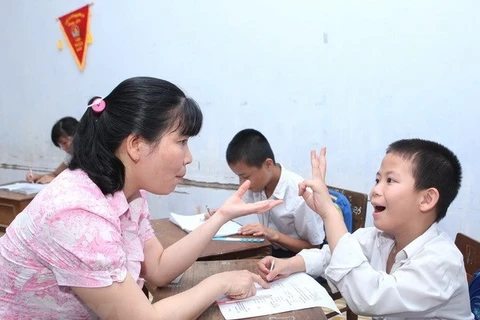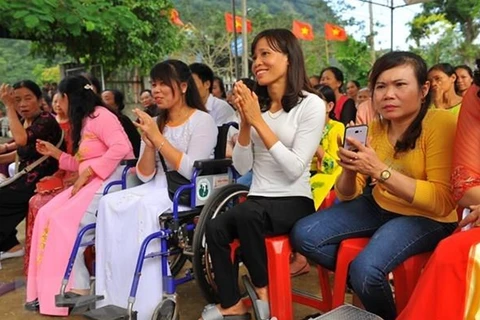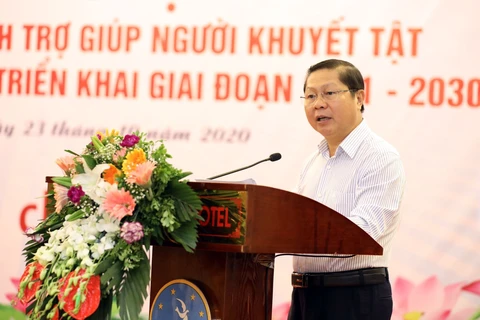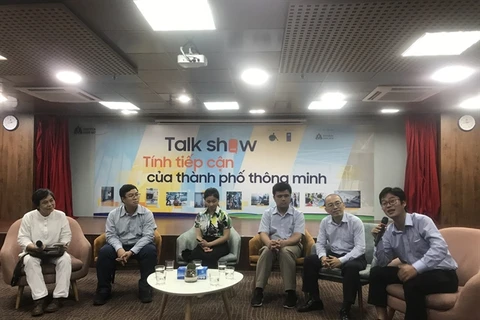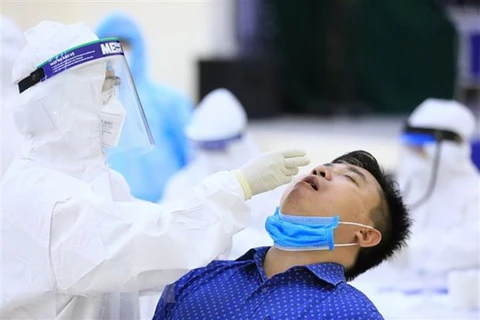Hanoi (VNA) - Thirty-nine students with disabilities will develop the skills needed to take on digital employment opportunities to help them live independently, support their families and contribute to the digital economy.
This is the objective of a five-month “Digital Employment Training Programme for Persons with Disabilities Co-existing with COVID-19” that has been launched with the collective efforts of the UN Development Programme (UNDP), the Government of Japan, and the Will to Live Centre.
“This is what we are contributing to the increased equal employment opportunities for persons with disabilities - the indicators of Article 27 of the Convention on the Rights of Persons with Disabilities (CRPD) and the Sustainable Development Goal No 8 on Decent Work For All,” said UNDP Resident Representative Caitlin Wiesen.
“We must ensure that existing inequalities and risks faced by persons with disabilities are not further deepened by COVID-19, and we can together build forward better toward a disability-inclusive, accessible and sustainable post COVID-19 world, which will also be the theme of the approaching International Day for Persons with Disabilities”.
Two of the key findings of the UNDP’s recent study on employment policies and their implementation for persons with disabilities were that reasonable accommodation was not stipulated by law, and that persons with disabilities were not being trained in the skills necessary to meet the demands of the new labour market.
As part of the project, the Will to Live Centre can lead the way by making reasonable accommodation available and providing the latest digital skills for persons with disabilities to integrate in the dynamic economy of the Fourth Industrial Revolution.
“Each people has their own ability and value,” said founder and CEO of the Will to Live Centre Nguyen Thi Van. “We need to create equal opportunities for everyone to unleash their potential,” she added, calling on students to find the strength to overcome all barriers and move forward.
“I wanted to go to university but there was no elevator there and my mum couldn't give me a piggyback up the stairs to my class everyday so I had to stay at home,” said Vo Thi Mien, 19, from Ha Tinh province. “I was sad because I wanted to integrate into society. Digital skills training opens a second gate for me. I hope that I can find a decent job after graduation to support my family.”
“I can type and play games on the computer. I've completed junior secondary school. When I was 16 years old, I learnt tailoring and got a job, but I lost it during COVID-19,” said Sung A Thang, a 20-year-old from the Mong ethnic group.
“I would like to learn photoshop and video-making. My dream is to have a series of clothes shops so I want to take promotional photos/videos for my shops. I would like to learn English, too,” he said.
Persons with disabilities (Pwds) have been among the hardest hit by the COVID-19 pandemic. The UNDP's Rapid Assessment on Socio-Economic Impacts of COVID-19 on Persons with Disabilities that covered nearly 1,000 respondents showed that 72 percent had a monthly income of less than VNĐ1 million; 30 percent had been made unemployed due to COVID-19; 49 percent had their work hours reduced, and 59 percent had received a pay cut.
Meanwhile, 71 percent of PwDs had seasonal/informal jobs or owned an informal business, so they were at risk of being ineligible to receive allowances from the Government’s social welfare response package./.
VNA

